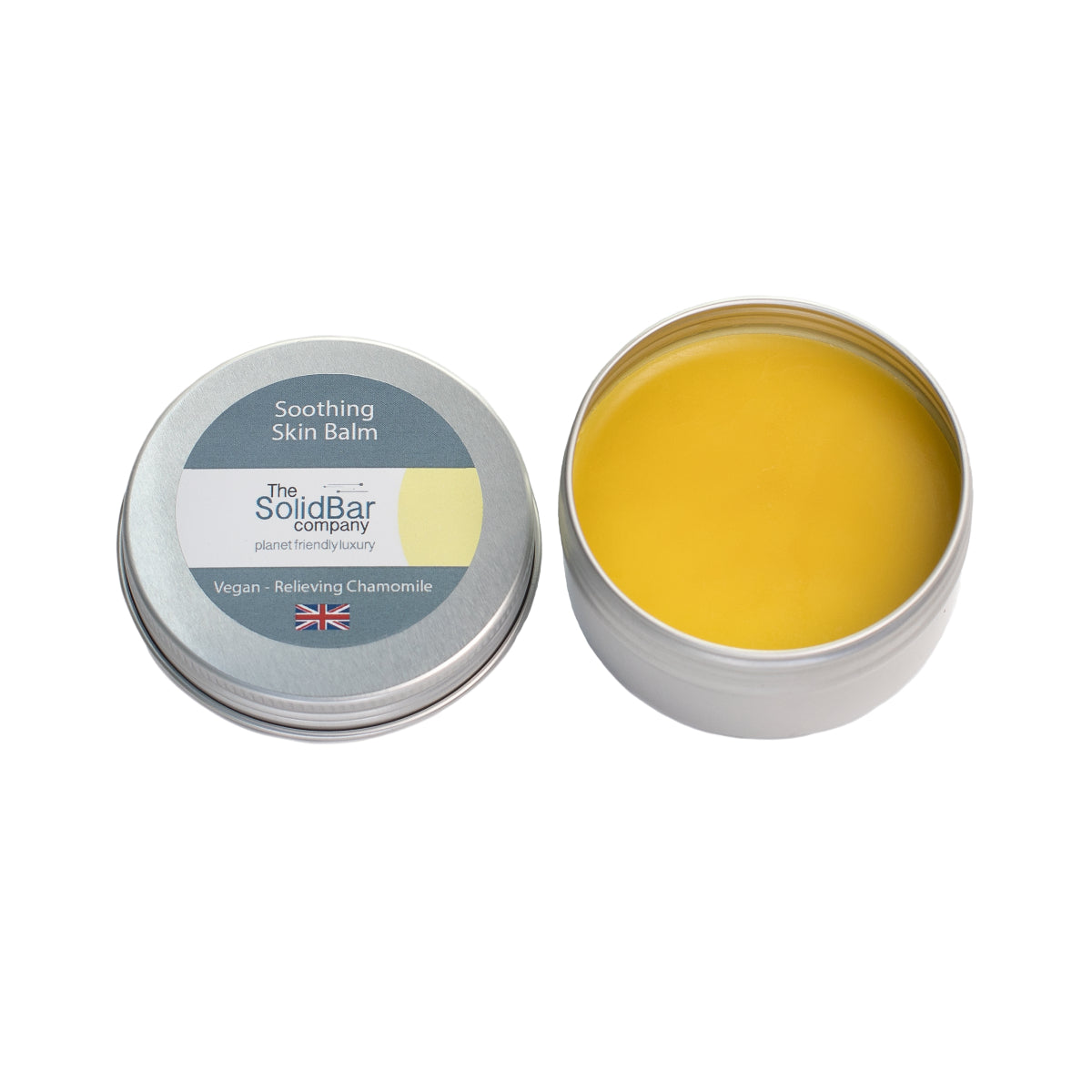Soothing Skin Balm
£9.99
-






With an abundance of natural active ingredients to soothe irritated and inflamed skin, this vegan Soothing Skin Balm is suitable for those prone to eczema, psoriasis and dermatitis. The ingredients have been naturally formulated using a combination of Calendula, Chamomile, Plantain leaf, Tamanu, Neem oil and Shea Butter, to naturally contain anti-inflammatory, anti-bacterial and anti-fungal properties.
- Contains anti-inflammatory, anti-bacterial and anti-fungal properties.- No synthetic fragrances, silicones, water or preservatives.
- Cruelty free - made in the UK
** Fast Online Sales 24/7 ** Best Rate Shipping **
*Disclaimer: Please note our products have not been evaluated by the Medicines and Healthcare products Regulatory Agency (MHRA) and are not intended to diagnose, treat, cure, or prevent any disease or medical conditions./>


